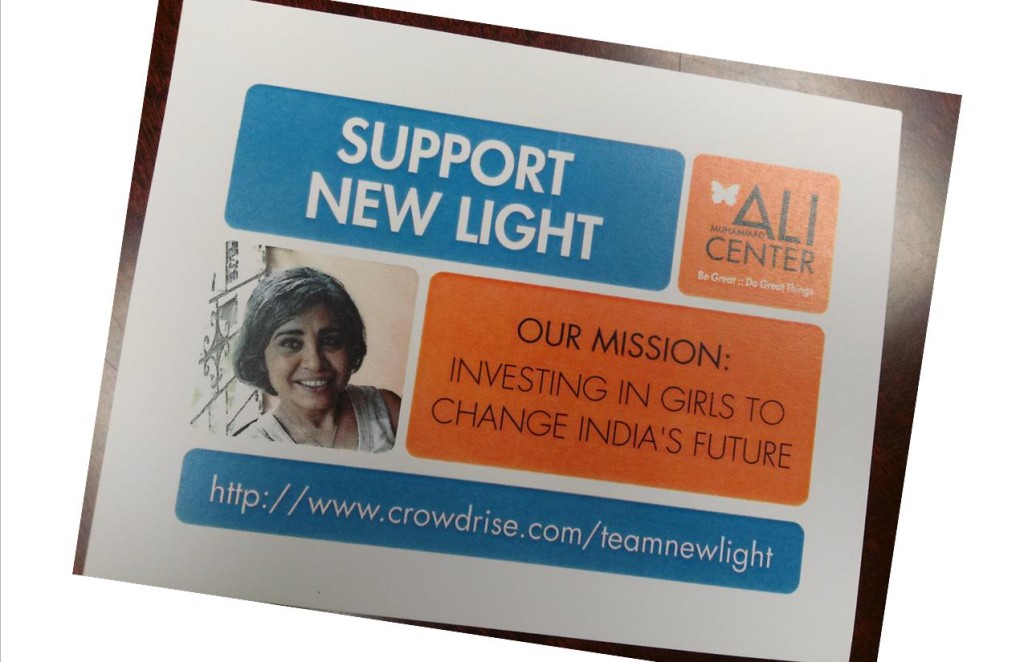“Intergenerational Prostitution.”
These words greeted viewers at yesterday morning’s Daughters of Greatness breakfast. I’ve become a regular attendee at the Ali Center’s series. The events are meant to recognize and give a forum to women who are doing amazing things in philanthropy, activism or justice. I always leave inspired (and feeling like a total slacker). Yesterday morning, Urmi Basu, founder of a nonprofit in Kolkata, India that helps girls escape from human trafficking and involuntary prostitution, was the speaker. She opened her talk with the India segment of the documentary, Half the Sky.Â
I couldn’t tweet because of a bad connection, so I’m sharing my notes here on the blog. Just as well. These deserve more than 140 characters anyway.
- Countries with the most conservative sexual mores tend to have the most prostitution. (from Half the Sky)
- Urmi’s second husband wasn’t comfortable with her working with prostitutes, advocating for them, buying them condoms, etc. She decided the work for these women was more important than what her husband thought. In the Q&A section later, Urmi said she was stigmatized socially after both her divorces.
- “Sometimes the problem feels so big that changing one life doesn’t feel like enough. But it is. If you’re that one girl, it matters.” –America Ferrera in Half the Sky
- “We cannot think this world is so dark that we cannot find light at the end of the tunnel.” –Urmi Basu (that’s how she came up with the name, “new light”)
- I always felt I was one of the lucky ones, born into a family that valued education, valued its girl-child,” Urmi said. She also said her parents raised her to value freedom, to take responsibility and to face the consequences of her actions.
- Urmi is of a different class and caste, but she was accepted by the women she wanted to help because she came to them, she said, “with a certain degree of respect” and knowing they also had a valued point. This made small changes possible.
- There is a discoNnect between India and second-generation Indians born in the U.S., said Urmi. People began to make securing wealth for future generations more important than taking care of people at home.
- Someone asked how do you get people to face the reality of human trafficking, to stop denying it happens? I loved her response: “Even if it is just one case, why should trafficking be tolerated? Every person matters.” Urmi also told us about the development of an organization similar to hers: The Starfish Project, named for the starfish parable.


